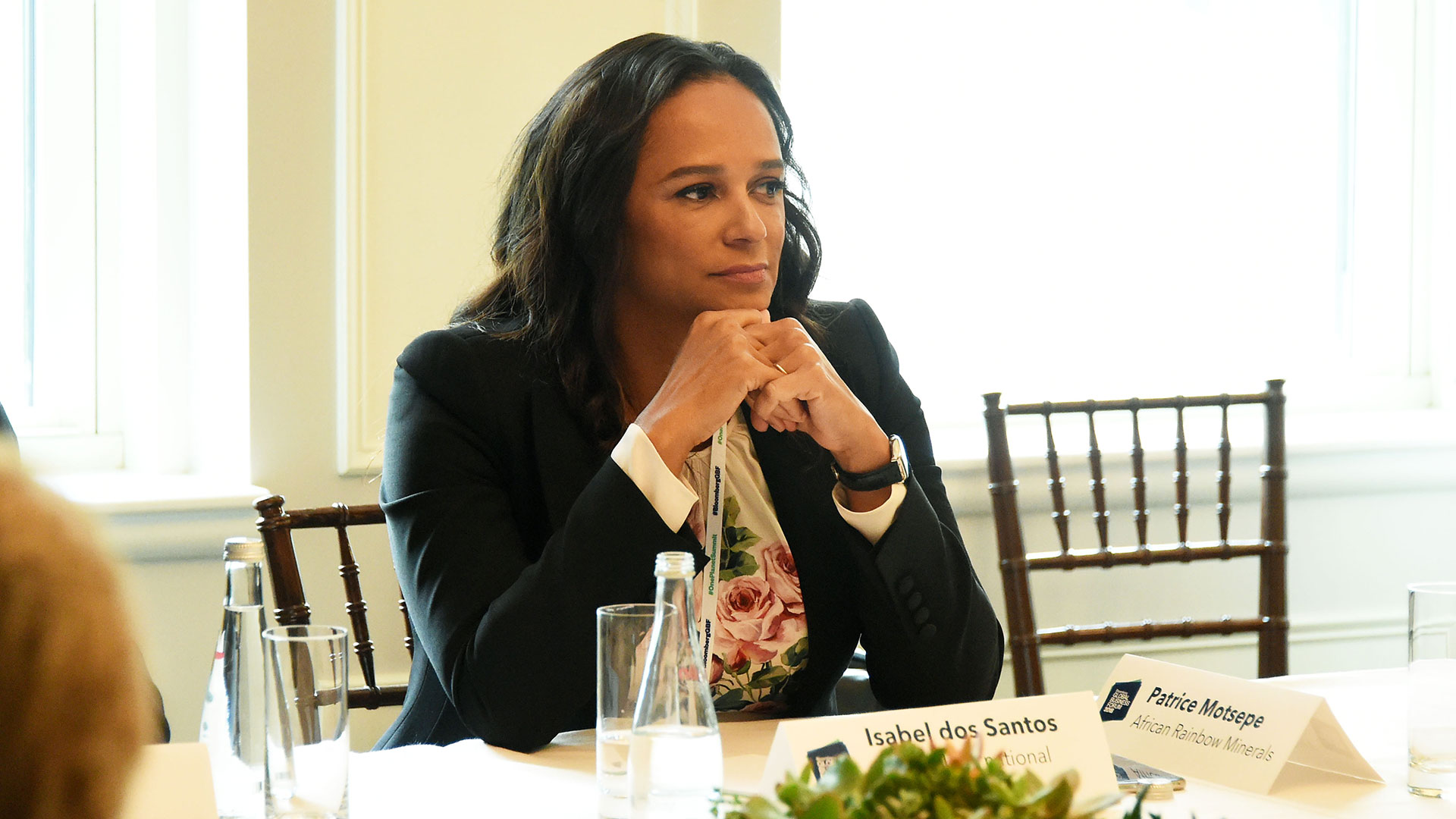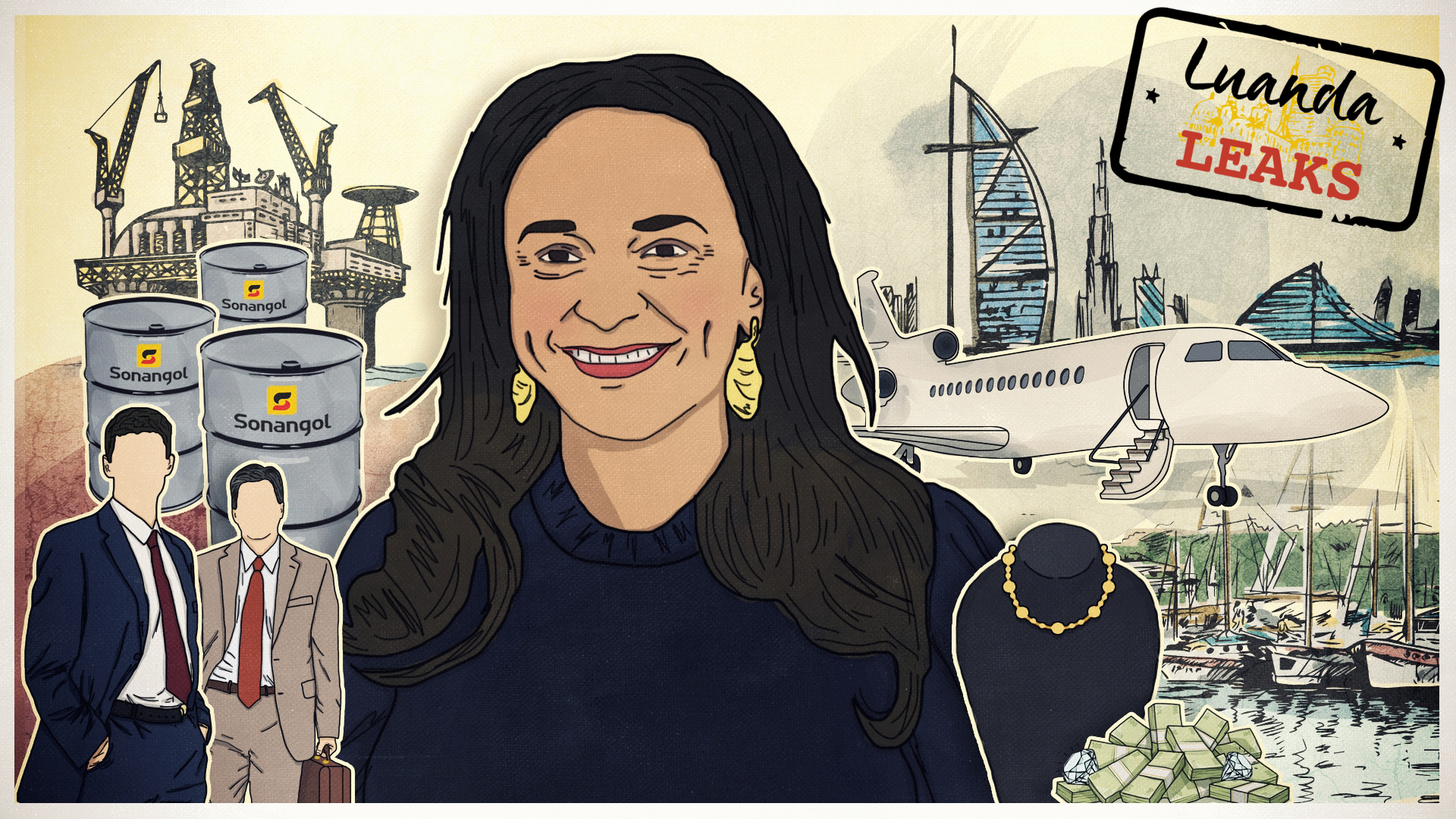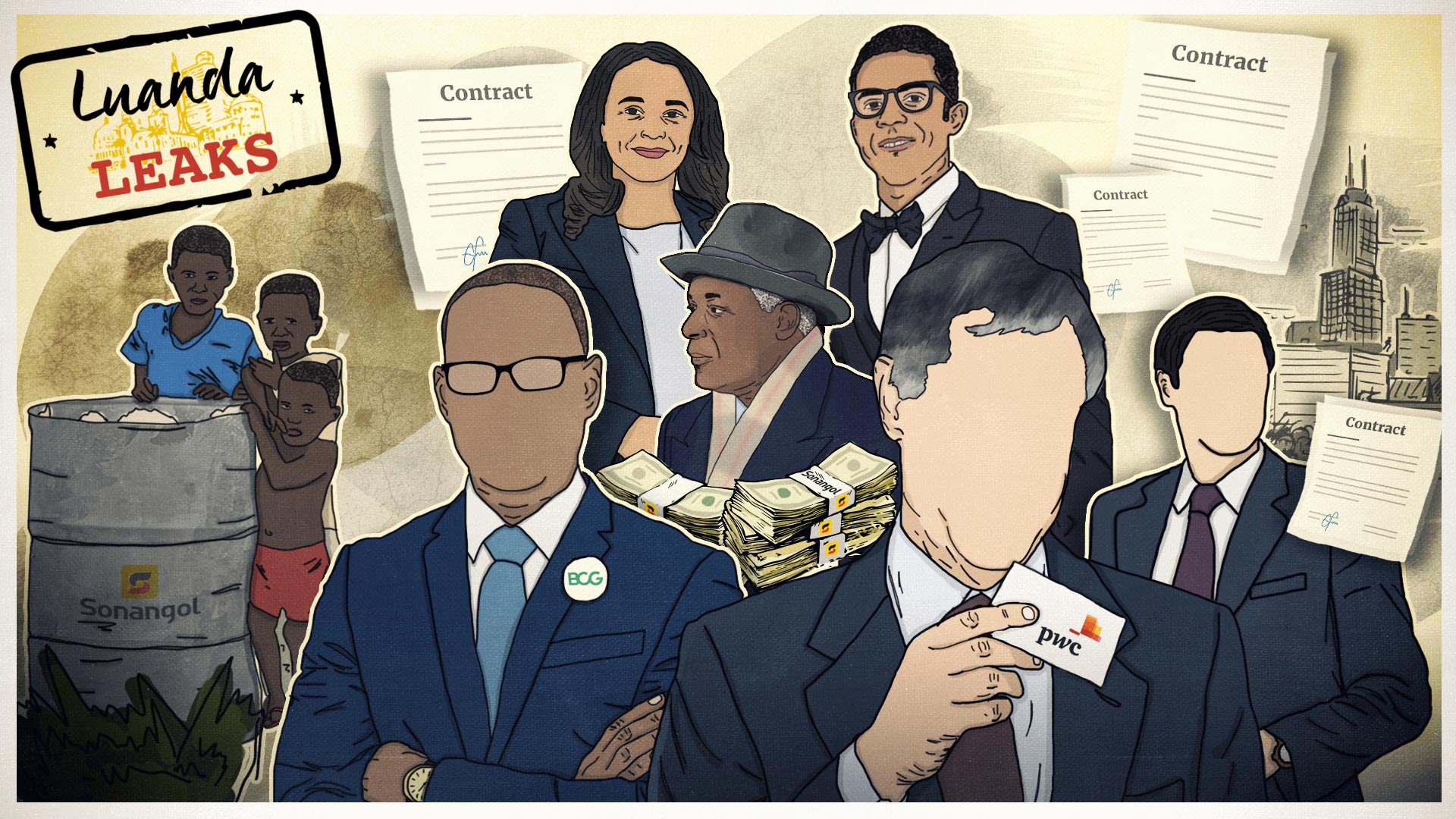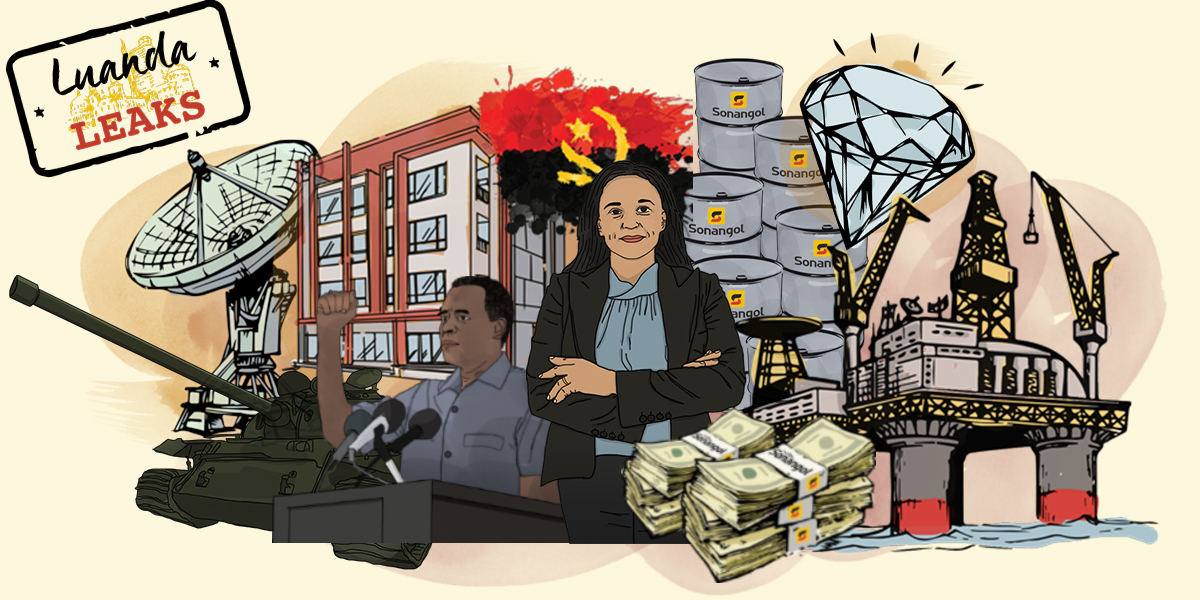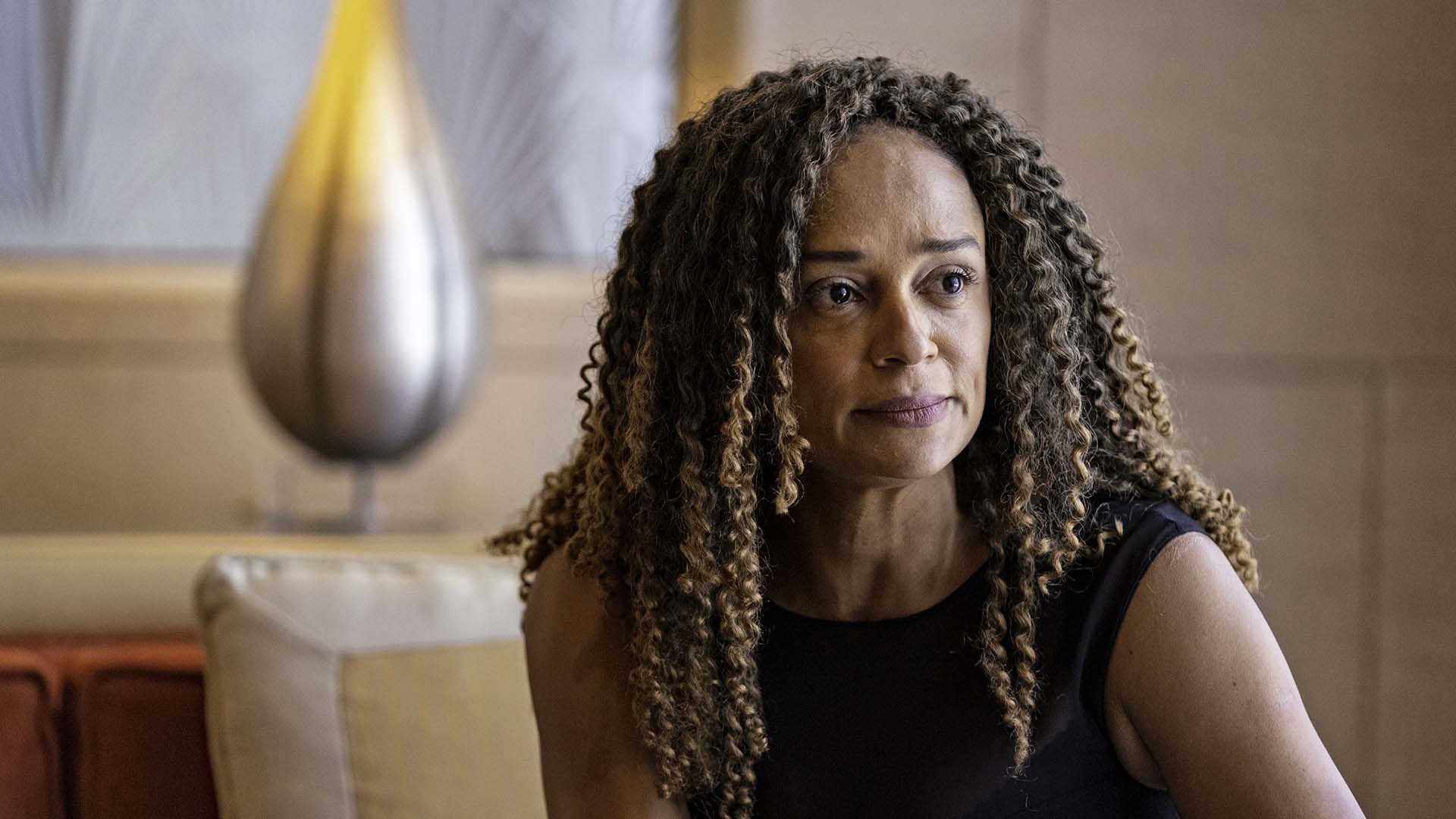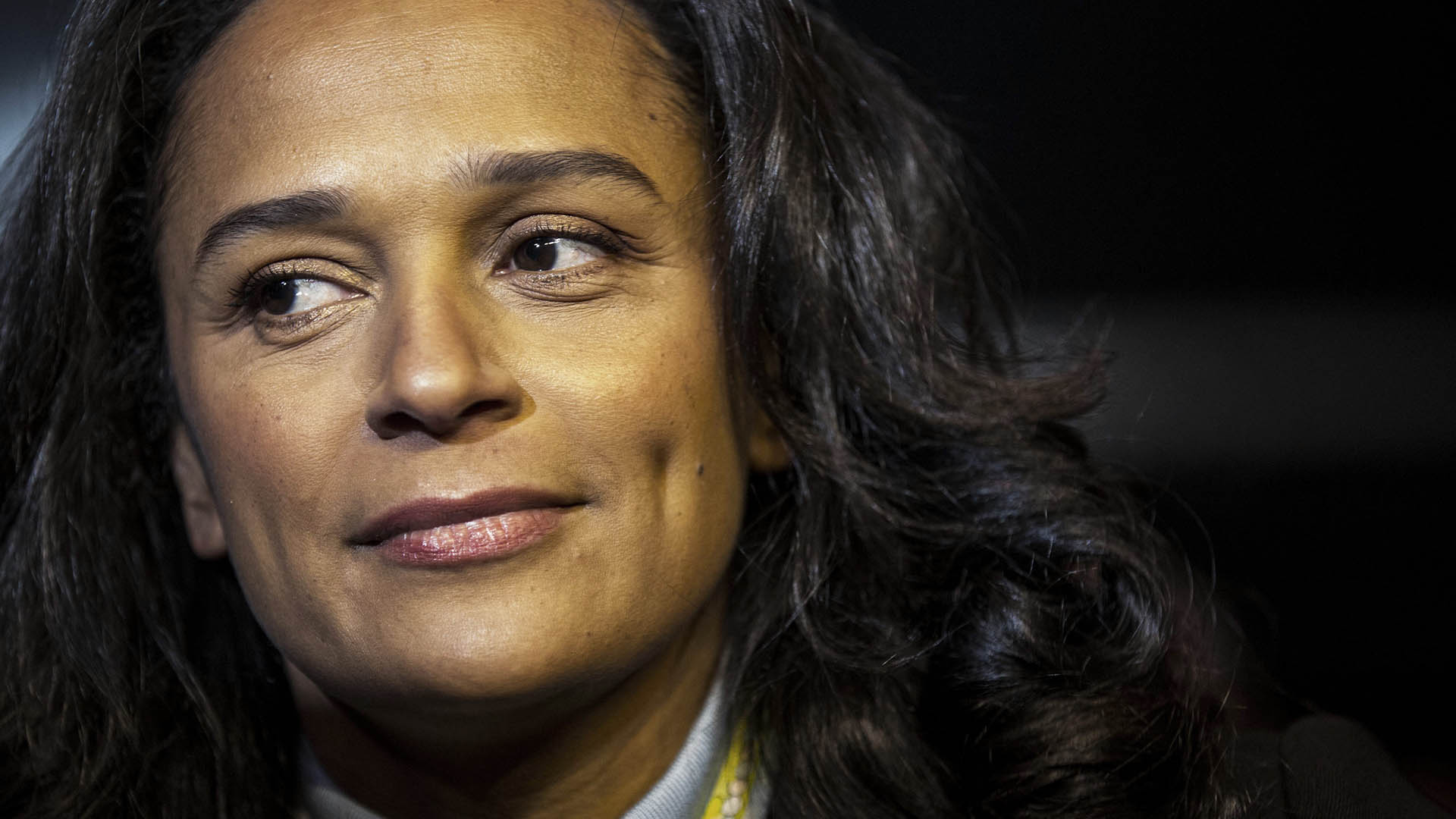Isabel dos Santos, the eldest daughter of Angola’s former president and Africa’s richest woman, is facing fraud charges, the country’s attorney general has told reporters in Luanda.
Dos Santos, the businesswoman at the center of the International Consortium of Investigative Journalists’ Luanda Leaks investigation, is accused of mismanagement and embezzlement of public funds during an 18-month stint as head of Sonangol, the state oil company.
“Isabel dos Santos … is thus charged in the first instance with the crimes of money laundering, influence peddling … forgery of documents, among other financial crimes,” attorney general Helder Pitta Gros told a news conference on Wednesday, according to Lusa news agency.
In a statement released by a London-based public relations consulting firm, dos Santos said she denies all the latest allegations being made by Angolan authorities. “I have always operated within the law and all my commercial transactions have been approved by lawyers, banks, auditors and regulators,” the statement said.
Portugal’s market regulator, the Portuguese Securities Market Commission, announced this week that it had opened inquiries into two companies in which dos Santos holds stakes, oil company Galp Energia and telecommunications firm NOS, as well as into unnamed auditing firms.
Commission chief Gabriela Figueredo was reported saying that the Luanda Leaks revelations were of “enormous importance” for the regulator.
The announcement by the Angolan authorities came on the same days as a report that dos Santos was selling her shareholding in her Portuguese bank Eurobic, Expresso, ICIJ’s partner in Portugal, said.
The bank told Expresso in a statement that the process for the sale of the 42.5% stake had already started, and that its non-executive directors who worked with dos Santos’ companies had already resigned.
A Eurobic spokesperson did not respond to ICIJ’s request for comment.
A banker implicated by Angolan authorities in the case against dos Santos was found dead in Lisbon on Wednesday.
Nuno Ribeiro da Cunha, 45, managed the account of the Angolan oil firm Sonangol, previously chaired by dos Santos, at Eurobic, and those of other companies linked to her.
Police inquiries are continuing into the circumstances surrounding his death.
Portuguese media has reported that da Cunha had been depressed for some time and he had likely committed suicide.
Dos Santos had previously been accused of embezzlement in 2018 by her successor at Sonangol, Carlos Saturnino, who alleged she had siphoned off more than $130 million to consultants and associate companies during her tenure, from June 2016 to November 2017.
The Luanda Leaks investigation, conducted by ICIJ and 36 media partners, found that dos Santos’ business associates set up a consulting firm in Dubai that received at least $38 million in payments from the state oil company after dos Santos took the helm. Documents show that the transfer, processed by the Portuguese lender EuroBic, happened hours after she was fired by the current Angolan president.
Dos Santos has denied all allegations of wrongdoing, branding government inquiries “politically motivated.” In a recent interview with BBC News, she said the payments were for legitimate services that consultants had already delivered.
The ICIJ investigation was based on a trove of 715,000 confidential files, including emails, company charts, PowerPoint presentations and contracts, containing details of dos Santos’ and her husband’s business dealings around the world during a period when her father ruled the country. They described how their companies got consulting jobs, loans, public works contracts and licenses worth billions of dollars.
The reporters also exposed how a web of bankers, lawyers, accountants and consultants helped dos Santos build and shield a fortune currently estimated at about $2 billion.
In December 2019, two weeks after ICIJ questioned Angola’s government about dos Santos’ business dealings, an Angolan court froze her major assets, including banks, a telecom company and a brewery. The government is now trying to recover $1.1 billion from dos Santos and her husband.
After the Luanda Leaks revelations, Angola’s Attorney General Pitta Gros pledged to use “all possible means” to bring dos Santos back to the country. She currently resides abroad, and in interviews has said Angola is no longer safe for her and her family.
At the Luanda press conference this week, Gros named dos Santos among five suspects, all of whom were out of the country.
Among those formally named is Mario Leite da Silva, one of dos Santos’ long-time business managers. Silva, who resigned this week as chairman of Banco de Fomento Angola, could not be reached for comment.
Angolan authorities also named Paula Oliveira, a friend and business partner of dos Santos who owns the Dubai consulting firm, and Sarju Raikundalia, Sonangol’s former financial chief.
They could not be immediately reached for comment. Both have previously denied wrongdoing.
“At the moment, the concern is to notify [the suspects] and get them to voluntarily come to face justice,” Gros told reporters, adding they may issue an international arrest warrant if dos Santos doesn’t cooperate with the authorities.
Angola’s attorney general — who previously told ICIJ his team has been collaborating with authorities from the U.S., U.K., Switzerland, Brazil and other countries — traveled to Lisbon today to meet with his Portuguese counterpart.
